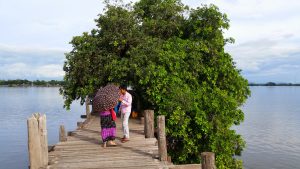RGS-IBG ANNUAL INTERNATIONAL CONFERENCE 2016
Royal Geographical Society
London, United Kingdom
30 August – 2 September 2016
Call for Papers
The Water-Gender-Violence Nexus in Disasters and Daily Lives
Sponsored by the Gender and Feminist Geographies Research Group of the RGS-IBG and the King’s Water Geography Research Hub
Session Convenor: Rebecca L. Farnum (King’s College London)
Session Abstract:
Awareness of the complexity of the links between water, gender, and violence is growing in research. Tragic cases in India of young women raped and murdered while searching for a spot to defecate drew the eyes of the world to the strong – and often horrific – ties between water for sanitation and hygiene and gender-based violence. Poor infrastructure creates opportunities for violence. Both temporary and permanent circumstances of limited resources and poor infrastructure can affect the way people interact with each other, both positively and negatively. The potential of water – in its abundance, scarcity, use, misuse, or related infrastructure – to be a driver of conflict and violence can only be understood via credible, extensive, and ground level research in a multiplicity of circumstances.
 Uben Bridge (photo credit Kris Chan)
Uben Bridge (photo credit Kris Chan)
Papers and case studies exploring the issues above and highlighting good practice are invited. The convenor particularly welcomes proposals focused on creative research practices, innovative development projects, and proven outcomes. In considering this session’s theme, proposals might address:
- Is water a ‘gendered resource’?
- How do gendered issues play out in water access and distribution?
- How do water discourses and resources impact violence at a variety of scales (home, community, country, global)? In a variety of circumstances (daily lives, natural disasters, abject poverty, relative resource wealth)?
- How can water be leveraged as a tool against gender-based violence?
This session will be formatted as a roundtable with 4-5 presentations lasting 12-15 minutes each followed by discussion across the case studies. Please email queries and proposals (complete with title, abstract of 200-300 words, and presenter information) to Becca Farnum at rebecca.farnum@kcl.ac.uk. The deadline for Abstracts is Friday 12 February 2016.